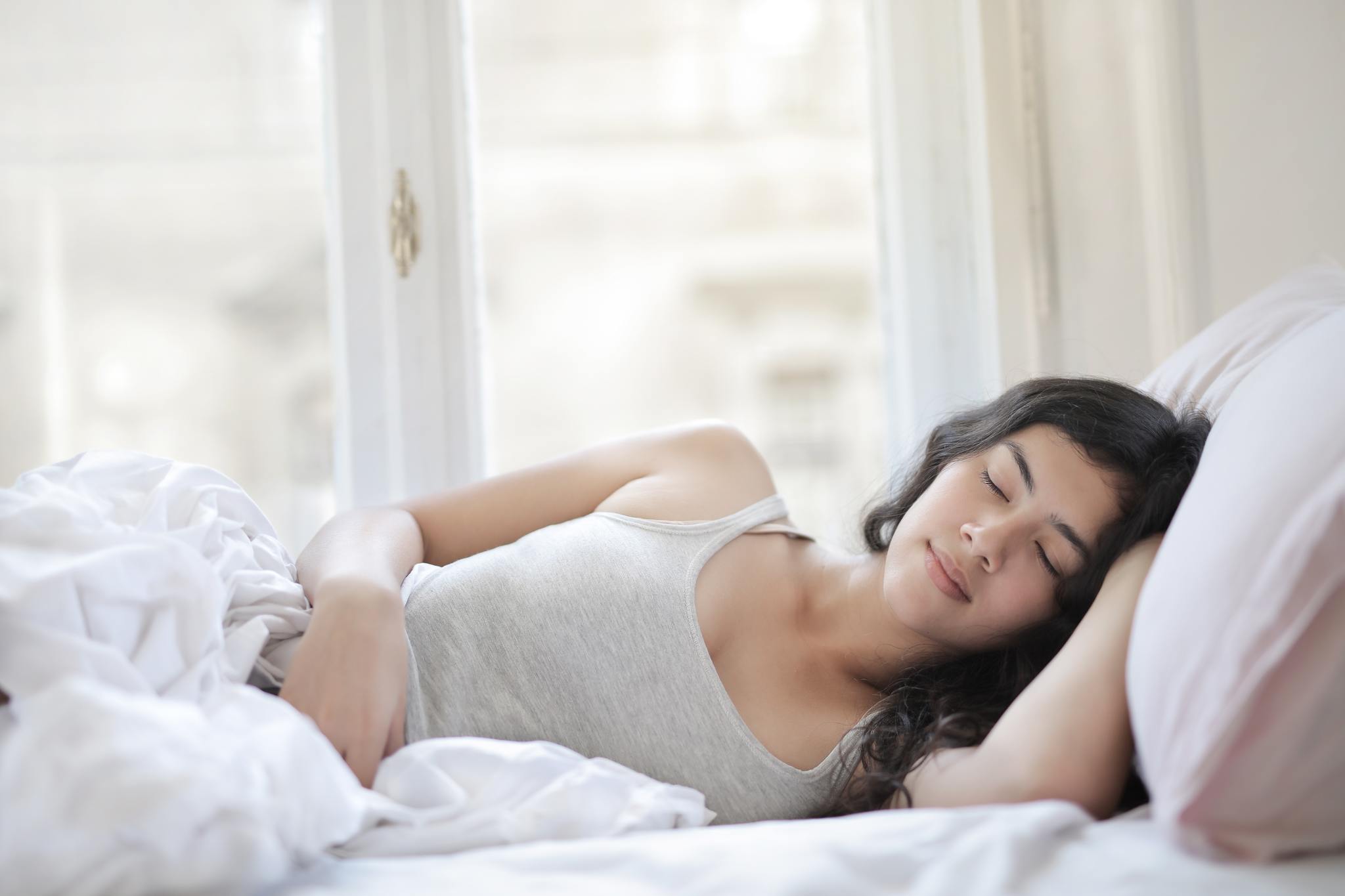
5 Ways to Improve Your Sleep
Do you notice that you sleep better during certain times of the month? Here are our top tips to get better sleep throughout your cycle.
Do you notice that you sleep better during certain times of the month? You’re not mistaken. The hormones that fluctuate during the course of your menstrual cycle also help regulate your sleep.
Progesterone especially, which rises during the first half of the menstrual cycle and spikes during the second half of the menstrual cycle, right before your period arrives, is associated with calming you down, helping you fall asleep, and stay asleep.
When you’re menstruating, you might find that your sleep is slightly disrupted--this could be partially due to the drop in both estrogen and progesterone during your menstrual period.¹
In fact, changes in your ability to fall asleep or sleep duration could be the first sign that your hormones are not in balance.
Debilitating PMS symptoms (like severe cramping, migraines, and mood swings) are likely to be closely associated with insomnia, sleeplessness, and morning tiredness. And once you hit menopause, sleep disruptions are common, because not only do levels of estrogen and progesterone dip, but the process also changes your circadian rhythms and suppresses the production of melatonin,² which is another hormone that is critical for proper sleep.
No matter what stage of life you’re in, here are out five ways to wind down at night and help keep your hormones in balance:
1. Get into the right sleep headspace
You can make bedtime a self-care-filled ritual for yourself, which can include your skincare routine, maybe taking a bath, and doing some yoga, meditation, or deep breathing to calm your mind. Make sure you get your bedroom into sleep shape too. That includes dimming lights, especially blue lights (found on TV screens, LED lights, and phone screens) which disrupt your body’s melatonin production, about two hours before bedtime.
2. Keep things cool
Especially if you’re going through menopause, cooler temperatures, even as low as 65 degrees, can mitigate night sweats that may keep you up. Wear lightweight, even moisture-wicking clothing to bed, and cover yourself with light cotton or microfiber sheets.
3. Lay off the caffeine
Immediately before menstruation, progesterone levels drop, so sleeplessness might accompany your PMS. It’s best to lower your consumption of caffeine, particularly in the late afternoon and evening, in those days before your period arrives.
4. Exercise regularly
Moving your body every day can assist your body in falling asleep faster and staying asleep, studies have shown.³ Extra exercise can help at certain times of your cycle when you feel especially wakeful.
5. Make sure you stay on schedule
Try slipping into the sheets and setting your alarm for the same time every day to get your body used to that pattern. And as much as you might feel like you need a nap, sleeping for more than a quick cat nap and falling into deep REM sleep may interrupt your sleep at night. Your circadian rhythms will thank you.
With these simple strategies, you can move toward getting the sleep your hormones need to stay balanced and your body needs to stay healthy.
Sources:
